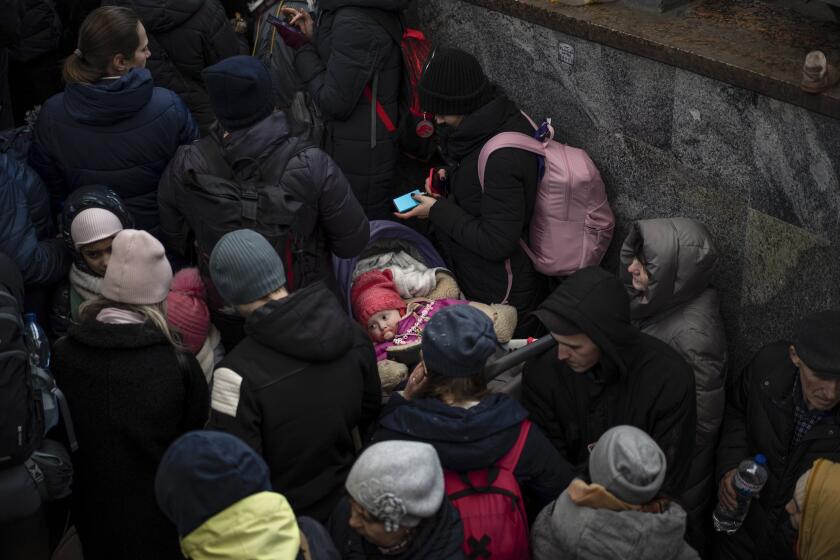Will Russia bring its war on LGBTQ people to Ukraine?
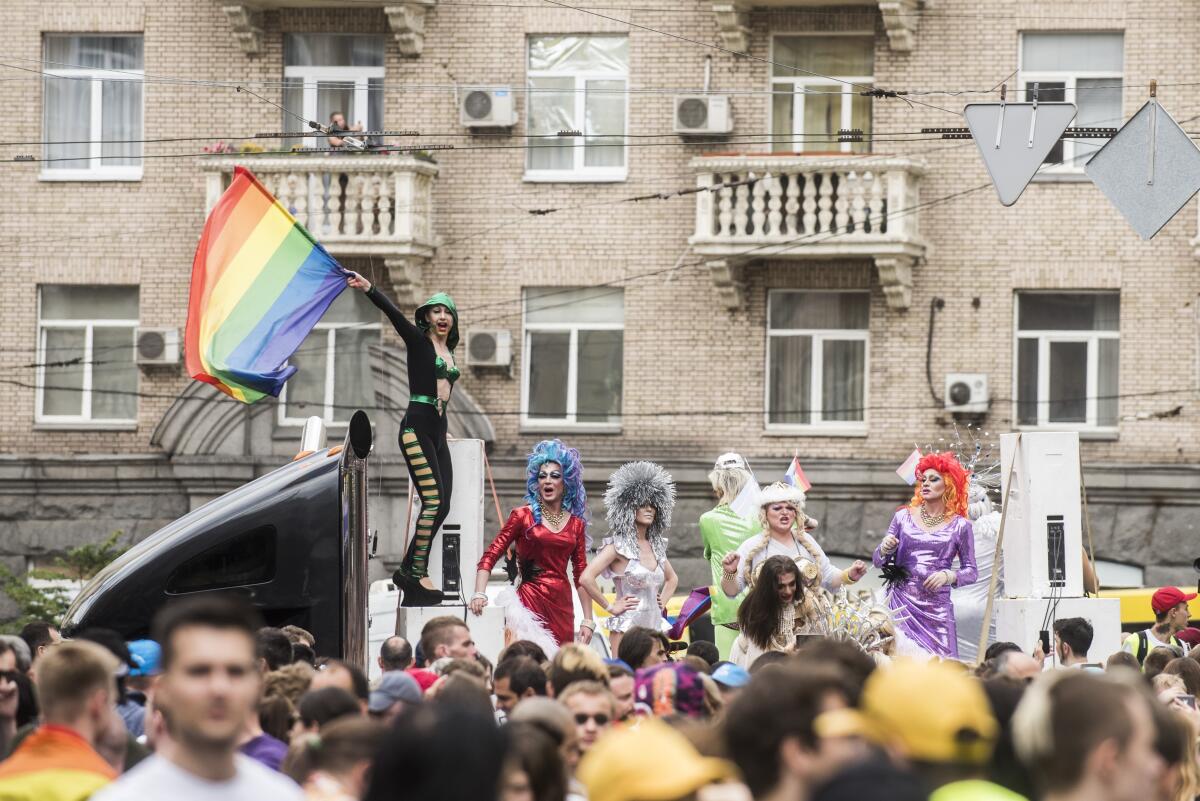
- Share via
Zi Faámelu wants to escape the war in Ukraine, but her identity will not let her.
The 31-year-old singer, who is transgender, has a passport that says she is male, the sex assigned to her at birth, and Ukraine has prohibited men of fighting age from leaving the country.
That paradox has left Faámelu hunkered inside her Kyiv apartment as missiles soar all around her. She is considering following other transgender women who have crossed into Poland illegally through the woods in the week since Russia invaded.
“Already we were fighting for our lives,” she said. “And now we’re actually in war.”
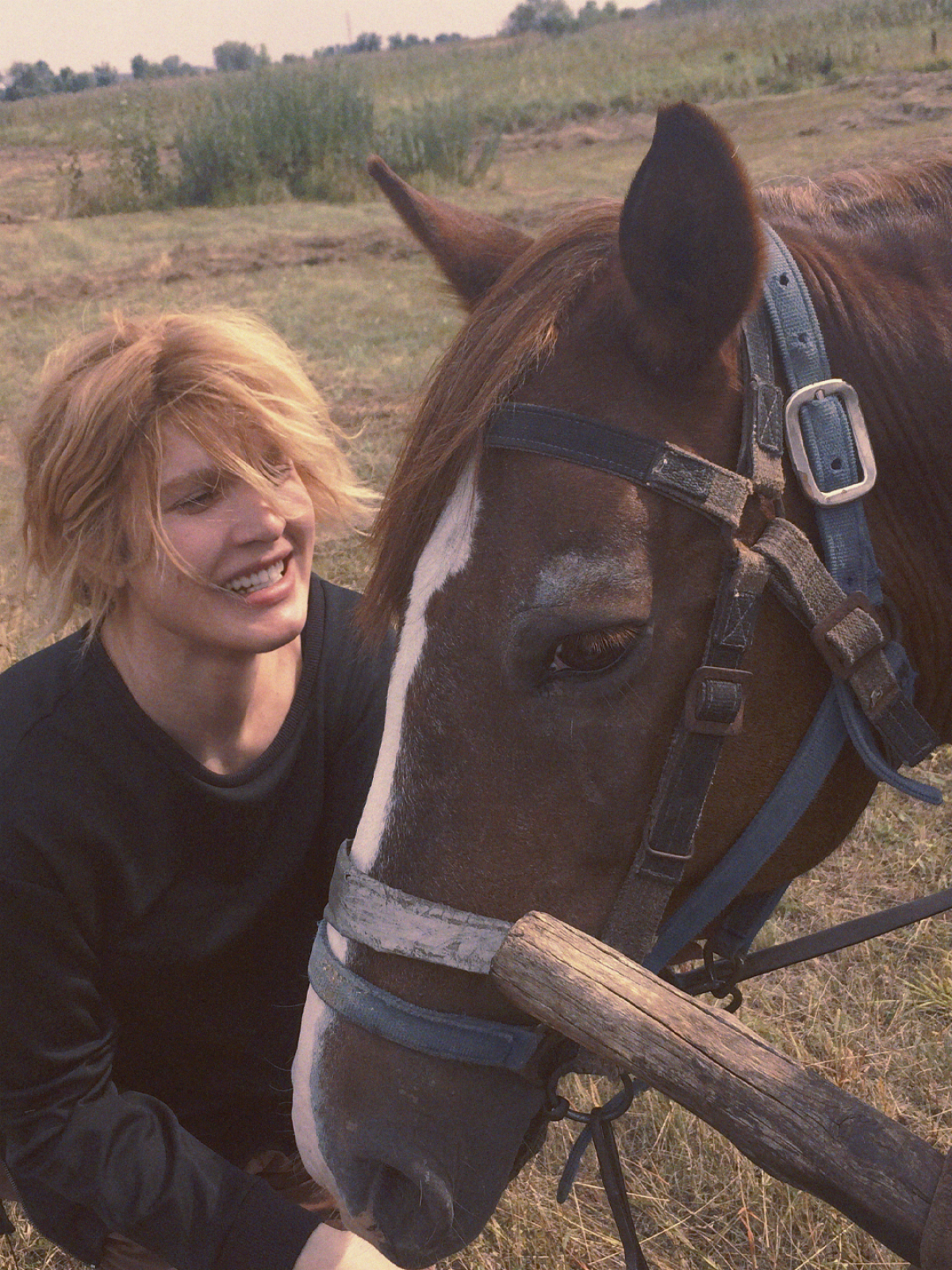
Faámelu is anxious to leave now. She knows that under a Russian occupation, life could deteriorate quickly for LGBTQ people like her.
“It is a very bleak situation for trans people in Ukraine,” Faámelu said. “But in Russia, it’s even worse.”
Over the last two decades, Russian President Vladimir Putin has waged an all-out assault on the LGBTQ community, framing it as part of a larger campaign to protect Russia’s “traditional culture” from what he describes as an onslaught of modern values promoted by the West.
Putin has called gender fluidity “a crime against humanity,” and equated homosexuality with pedophilia.
A “gay propaganda” law passed in Russia in 2013 made it illegal to promote gay rights and has been used to jail activists and shut down LGBTQ support groups. And during a series of anti-gay purges in Russia’s Muslim-majority Chechen Republic, in which officials kidnapped, tortured and in some cases killed men suspected of having sex with other men, the Kremlin turned a blind eye.
At the same time, life for LGBTQ people in Ukraine has slowly been improving.
Now, with tens of thousands of Russian troops encircling major Ukrainian cities, gay, lesbian and transgender people are worried about what a Russian takeover might mean for them. The U.S. ambassador to the United Nations warned last month that “LGBTQI+ persons” are included on lists created by Russian forces of Ukrainians “to be killed or sent to camps following a military occupation.”
“None of this augurs well for LGBT people in Ukraine,” said Graeme Reid, director of the LGBTQ rights program at Human Rights Watch. Putin, he said, has long used “the specter of LGBT rights as a political wedge issue” to appeal to conservatives at home and abroad.
As Putin has made gay people the boogeymen for all of Russia’s ills, Reid said, he has also fueled “a demonstrable increase in discrimination and violence.”
The war’s high stakes have led some LGBTQ Ukrainians to try to flee, while others have stayed and joined the resistance.
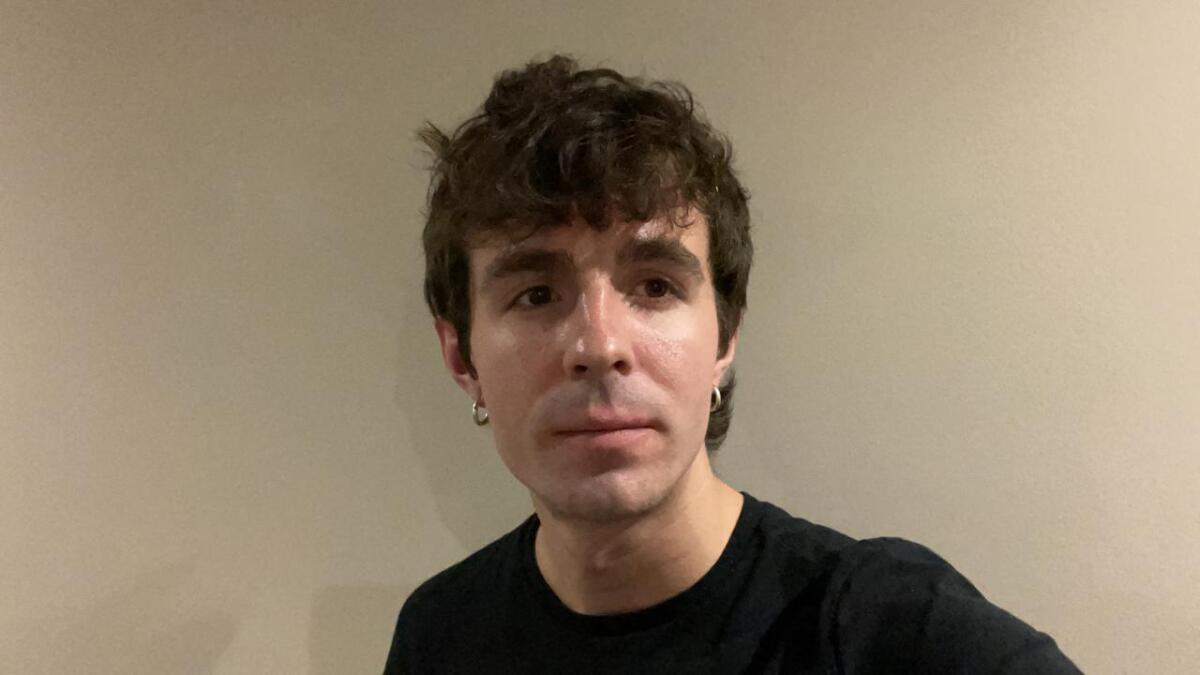
“If we were under Russian rule, we’d have to shut our mouths, we wouldn’t be able to dress how we want, we would never have gay pride,” said Yura Dvizhon, 29, a well-known Ukrainian director. “I don’t want to live that life. That’s why I have to fight.”
After Russia invaded on Feb. 24, Dvizhon and his friends left Kyiv for western Ukraine, where they are running social media campaigns to pressure Russian celebrities to speak out against the war and highlighting LGBTQ Ukrainians — such as a popular drag queen — who are serving on the front lines of the war.
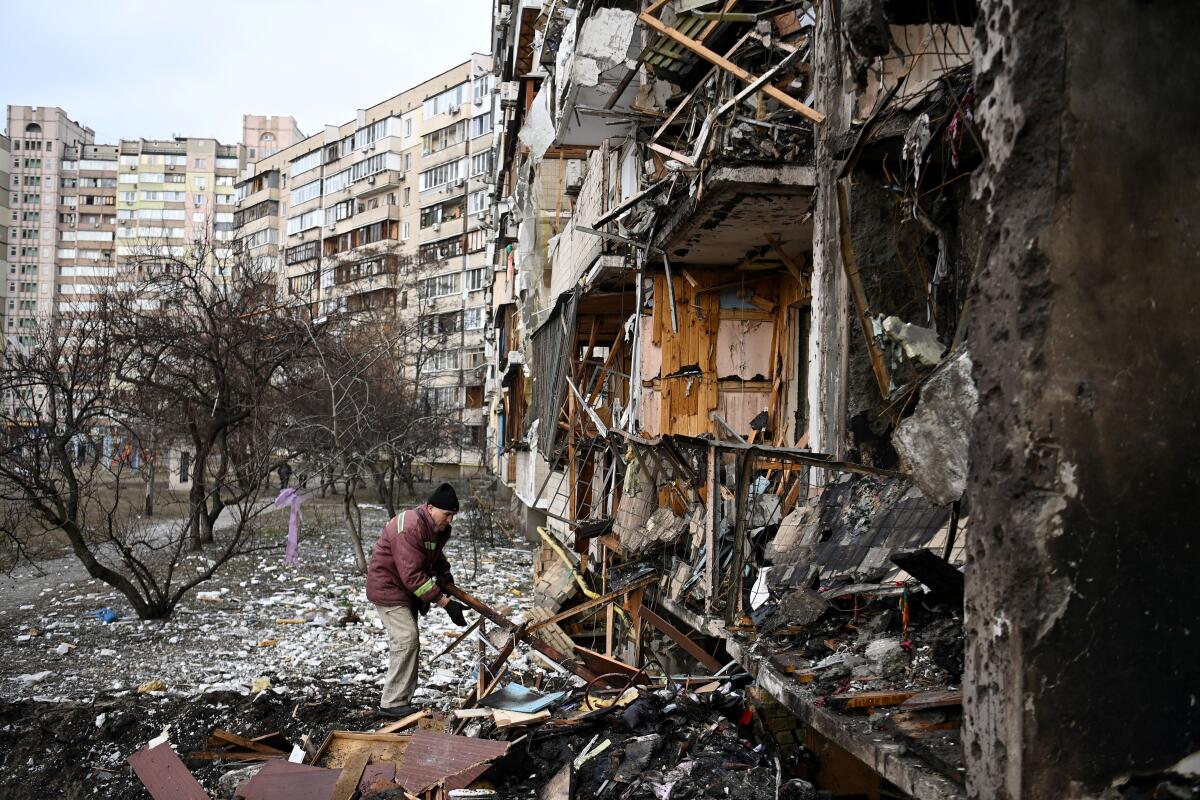
Ukraine was never a utopia for gays and transgender people, Dvizhon said.
Gay marriage is illegal in Ukraine, LGBTQ people are not protected by anti-discrimination laws, and the influential Christian Orthodox Church views homosexuality as a sin. One prominent church leader has called the COVID-19 pandemic “punishment” for the expansion of same-sex marriage across the world.
Dvizhon, the co-founder of a nonprofit group pushing for LGBTQ rights, is still afraid to hold his boyfriend’s hand in public. But he says things are slowly getting better.
Last year’s annual gay pride parade in Kyiv drew 7,000 people — a victory, even if police were called in to fend off anti-gay protesters. Opinion polls show Ukrainians have become more accepting of gay rights over the last decade.
Significantly, the LGBTQ community has begun to receive tacit signs of support from Ukraine’s European-allied government.
In 2019, President Volodymyr Zelensky snapped back at a homophobic heckler who had interrupted his speech. “We all live together in an open society where each one can choose the language they want to speak, their ethnicity, and [sexual] orientation,” Zelensky said. “Leave those people be, for God’s sake!”
While there are still concrete laws — an anti-discrimination bill foremost among them — that the nation’s LGBTQ community is waiting for, everybody knows that the situation for gay people in Russia is “much, much, much worse,” said Natsya Kosach, a lesbian DJ in Kyiv.
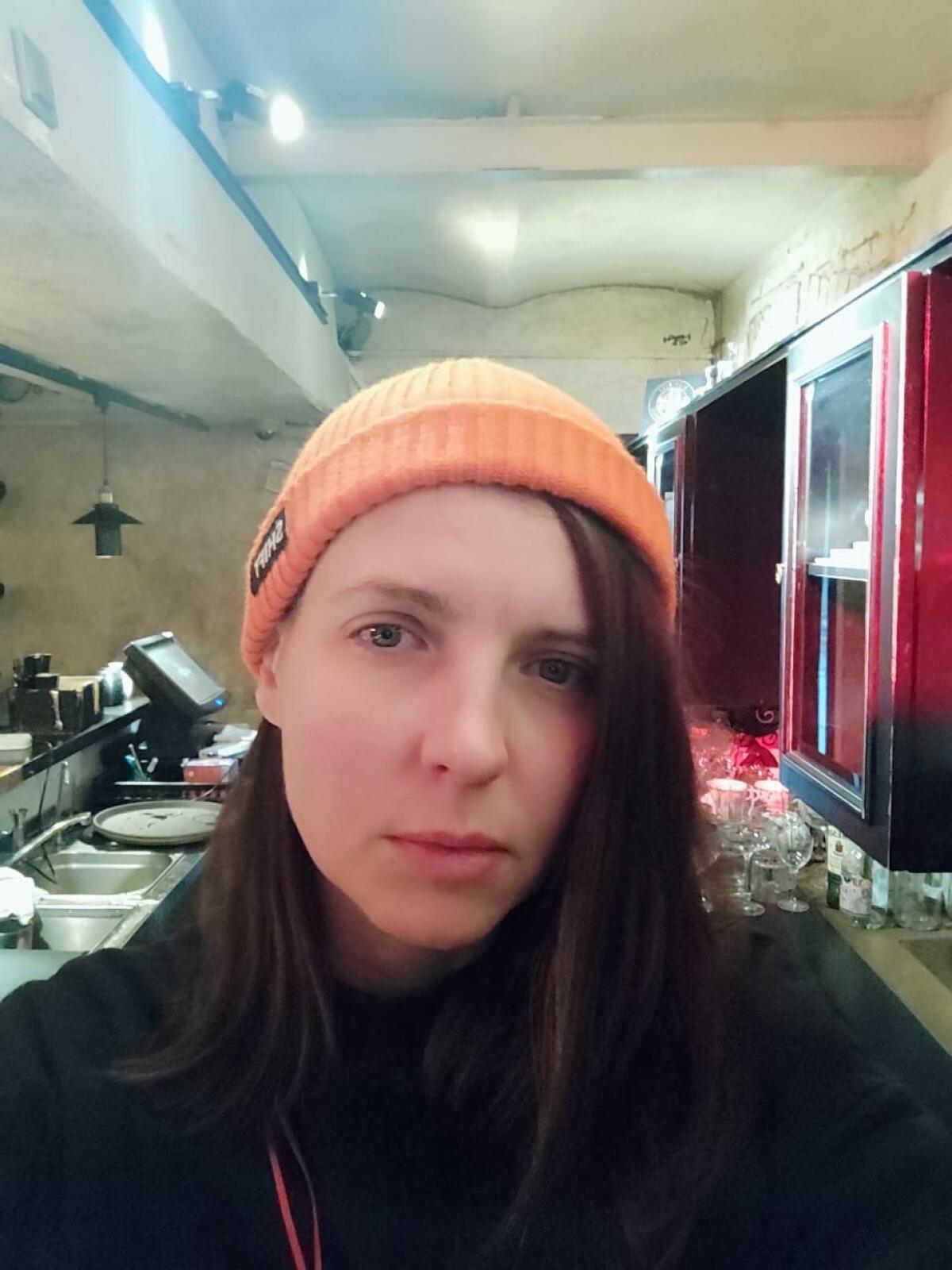
While many Ukrainian women have fled to Poland, part of an exodus of 1 million people in just the last week alone, Kosach decided to stay.
She has been hiding from bombs in an underground bar where she used to perform, sleeping in fitful shifts curled up on the stage and cooking meals for soldiers and families that have taken shelter underground in the city’s subway.
The war, she said, had brought Ukrainians together like never before, and it has begun to feel like past divisions — including disputes over gender and sexuality — don’t really matter.
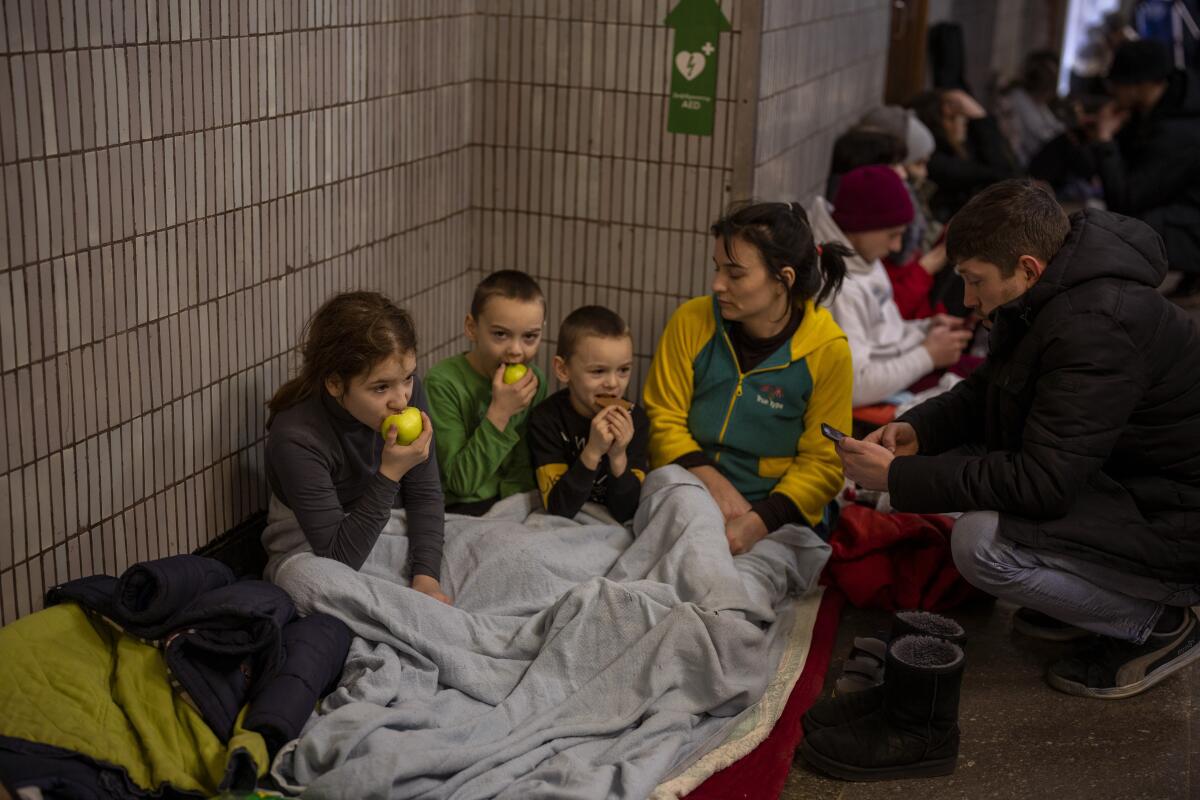
“I think this situation will unite everybody more than ever,” she said. “I know gay guys who are in the Territorial Defense [Ukraine’s military reserve force] and nobody is saying anything to them.”
Faámelu was less optimistic that Ukraine’s wartime unity had erased discrimination.
The transgender singer is running low on food, but is afraid to go out into the city to replenish supplies, not only because of the threat from Russians, but also because many Ukrainians are newly armed, having been handed weapons to defend against the invasion.
“This is a homophobic, transphobic place,” she said. “We are not protected.”
Some 500,000 Ukrainians have fled their homeland since Russia invaded last week.
She knows that under Russia, life would probably be even scarier. Her parents are from Crimea, a Ukrainian territory annexed by Russia in 2014. The region has become more homophobic since then, she said.
She believes anti-gay and trans discrimination has its roots in the Orthodox Church but also the Soviet Union, which broke up in 1991.
In Soviet society, conformity was prized. “If you were different, you were ridiculed,” she said. “Expression was seen as a no-no.”
For now, as she debates going to the border and crossing illegally, she keeps herself occupied by dancing alone in her apartment to ’70s songs. Anything, she said, to keep her mind off the missiles screaming by.
Linthicum reported from Mexico City.
More to Read
Sign up for Essential California
The most important California stories and recommendations in your inbox every morning.
You may occasionally receive promotional content from the Los Angeles Times.
